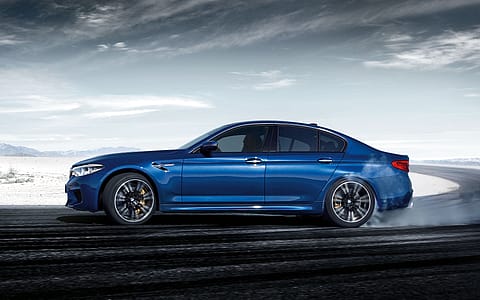VST Group drives on India’s luxury boom, even as Bengaluru’s millionaires steer clear of supercars
It's not the sporty or the flashy cars, but time-tested, legacy car brands that still have the calling from the rich

When out to buy a luxury car, what do the young startup millionaires in Bengaluru look for? If your guess is a sports car like Porsche, Maserati, or Lamborghini, you’re most probably wrong. “You really have a very few people in the startup (space)—late 20s or early 30s—looking at it (sports cars) because they're building wealth and they're living on private equity money. It's not even their money,” says Arun Surendra, chairman & group MD of the 115-year-old, Bengaluru-based family-owned business VST Group.
With an annual turnover of over ₹5,000 crore, VST Group is the exclusive dealer of Maserati in South India and other automotive brands, including Mercedes-Benz, Jaguar Land Rover, Porsche, and Ducati. “(In the South) When you talk of luxury, I think Mercedes and BMW. The traditional is still considered luxury. Anyone who wants to, who's made it as head of a group or head of a business, or CEO, will buy the Mercedes, BMW, the Audis, maybe the Rolls-Royce,” Surendra says.
The recent Goods and Services Tax (GST) rate slab rationalization, particularly for the automotive sector, has prompted passenger car makers of all sizes in India to announce a series of price cuts. Although taxes on luxury cars were increased from 28% to 40%, in effect, with the compensation cess being done away with and a flat tax slab introduced, these changes have resulted in what was once an effective tax rate of up to 50% being reduced to a flat 40% now. “What matters as much as the rate cut is the clarity. With a simpler, predictable tax structure, companies can plan better, and customers know where they stand. That stability is what really drives sustainable growth in the auto sector,” Surendra says. Iconic luxury brands such as Mercedes-Benz and BMW have seen a boost in sales during the third quarter of 2025 owing to the rate cut.
That said, those buying luxury sports cars are still the entrepreneurs and business owners in their late 30s or 40s and 50s, or those with wealth buying it for their children. The likes of Maserati Grecale, Mercedes-AMGs, and Porsche’s Cayenne and Macan appeal to the Indian sensibilities, he says. Being the exclusive dealer for Maserati across the four southern states, VST Group sees an average of one Maserati being sold every month in each state. “Between Tamil Nadu and Karnataka, roughly the two biggest, and Andhra, the three biggest states, nearly about 300 to 350 vehicles are sold into the luxury space, which includes Mercedes, BMW, Jaguar, Land Rover, Volvo, Lexus, and Porsche,” Surendra adds.
With entry-level cars upwards of ₹60 lakh going all the way up to ₹4 crore, VST is betting on the Indian growth story, with penetration levels still being minuscule. Pointing at the numbers, Surendra says there is a lot of expectation from OEMs that India will grow at some point, with indicators such as the luxury housing boom and stock market growth signalling that enough money is there to be spent. “Less than 1% of all automotives sold in India are termed luxury; compare that to a developed country, where it is 20 to 25%. In England, Europe, and North America, one in four is a luxury car. In developing countries like Malaysia, Brazil, and Turkey, it's about 5%. So, there's a huge growth opportunity in India for people to buy into luxury,” Surendra adds.
Now with the U.K.-India trade deal and another one with the EU in the pipeline, the luxury automotive sector expects growth coming their way this year. “As long as there's no economic negativity, I think we'll grow at 7-8%. I think some brands will grow better than the others,” he adds.
Apart from automotive franchises, VST is also a leading manufacturer in the farm equipment segment with its range of tillers and tractors. It is also listed on the stock exchanges. The group is also a distributor for original automotive parts and runs a finance business primarily focussed on automotive finance. VST Tractors saw its highest turnover of ₹282 crore in Q1FY26, and a 92% growth in its power tiller sales at ₹11,700, compared to Q1FY25. The early monsoon this year has been positive. “With most elections done last year and most states having stable governments, there is definitely a lot more cash coming in from the Central government to the state, to the farmer's hand, which means then they're buying equipment and buying fertilizer and buying seeds,” Surendra adds.